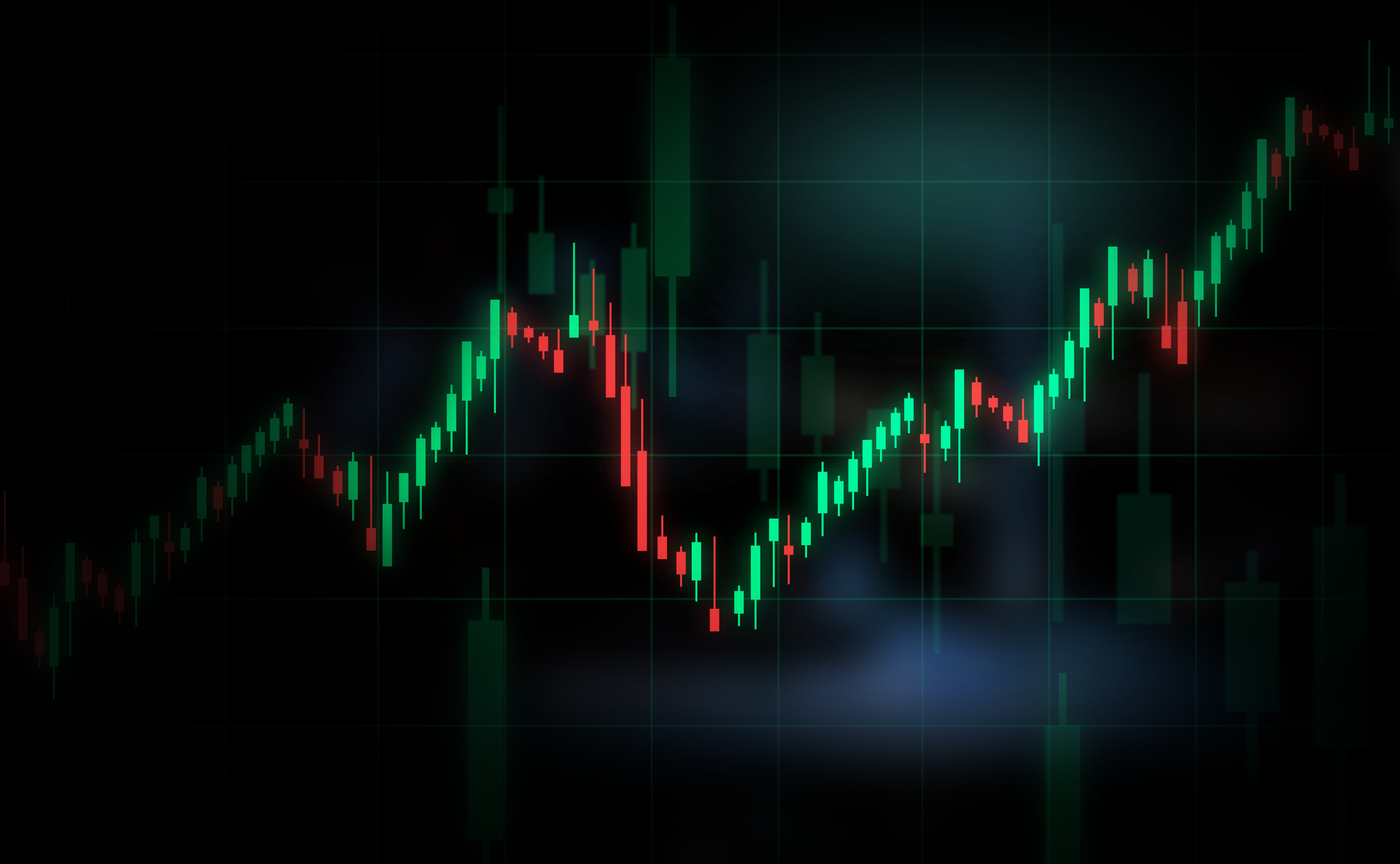Facebook's IPO Status Update
The popular social network’s disappointing first-quarter earnings report suggest that its initial public offering may not be a sure thing.

Profit and prosper with the best of Kiplinger's advice on investing, taxes, retirement, personal finance and much more. Delivered daily. Enter your email in the box and click Sign Me Up.
You are now subscribed
Your newsletter sign-up was successful
Want to add more newsletters?

Delivered daily
Kiplinger Today
Profit and prosper with the best of Kiplinger's advice on investing, taxes, retirement, personal finance and much more delivered daily. Smart money moves start here.

Sent five days a week
Kiplinger A Step Ahead
Get practical help to make better financial decisions in your everyday life, from spending to savings on top deals.

Delivered daily
Kiplinger Closing Bell
Get today's biggest financial and investing headlines delivered to your inbox every day the U.S. stock market is open.

Sent twice a week
Kiplinger Adviser Intel
Financial pros across the country share best practices and fresh tactics to preserve and grow your wealth.

Delivered weekly
Kiplinger Tax Tips
Trim your federal and state tax bills with practical tax-planning and tax-cutting strategies.

Sent twice a week
Kiplinger Retirement Tips
Your twice-a-week guide to planning and enjoying a financially secure and richly rewarding retirement

Sent bimonthly.
Kiplinger Adviser Angle
Insights for advisers, wealth managers and other financial professionals.

Sent twice a week
Kiplinger Investing Weekly
Your twice-a-week roundup of promising stocks, funds, companies and industries you should consider, ones you should avoid, and why.

Sent weekly for six weeks
Kiplinger Invest for Retirement
Your step-by-step six-part series on how to invest for retirement, from devising a successful strategy to exactly which investments to choose.
Editor's Note: This story has been updated since its original publication to include Facebook's official initial public offering date.
The layup that was Facebook's initial public offering is no longer a sure thing.That's the most obvious conclusion to be gleaned from Facebook's just-released first-quarter financials, the company's final results before the IPO, expected in mid May.
But what may look like bad news on the surface may be good news for investors. Suggestions that Facebook would go public at about $40 a share, or 97 times what the ubiquitous social networking company earned over the past 12 months, may no longer be operative. The stock now could go public at a lower price. Moreover, new uncertainty about the Menlo Park, Cal., company's growth prospects may temper some of the feeding frenzy that was expected to take place on the stock's first day of trading -- currently scheduled for May 18.
From just $107.88 $24.99 for Kiplinger Personal Finance
Become a smarter, better informed investor. Subscribe from just $107.88 $24.99, plus get up to 4 Special Issues

Sign up for Kiplinger’s Free Newsletters
Profit and prosper with the best of expert advice on investing, taxes, retirement, personal finance and more - straight to your e-mail.
Profit and prosper with the best of expert advice - straight to your e-mail.
Facebook's offering price won't be known until right before it goes public. The $40 price point is where the shares were trading in private transactions before those sales were halted earlier this year. At that price, the company would be valued at roughly $104 billion -- about the same as Pepsico.
Facebook, which will trade under the symbol FB, earned $974 million, or 44 cents per share, over the past 12 months. But if you account for the additional dilution anticipated by stock options triggered in the offering, earnings would be 41 cents per share. So at a share price of $40, the price-earnings ratio based on trailing 12 months' earnings would be 97. A P/E that lofty can be justified and improved upon only if the company can maintain sound-barrier-busting earnings growth.
But Facebook's first-quarter earnings report, released on April 24 as an amendment to its initial offering prospectus, throws that assumption into question. Forget about articles focusing on the decline in sequential growth -- that is, from the fourth quarter of 2011 to the first quarter of 2012 -- due to seasonal factors. The key is comparing year-over-year results, and by that measure, Facebook laid an egg. It earned $205 million in the first quarter, down 12% from what it made in the first quarter of 2011.
The major culprit in the earnings decline was a huge rise in expenses. And the company's offering circular makes it clear (if you can get past the financial gobbledygook) that those higher expenses are here to stay. "We expect cost of revenue as a percentage of revenue to increase in 2012 compared to 2011 as we continue to invest in our technical infrastructure," the company says in the updated document.
Imagine the carnage if Facebook were already trading. How does a 20% haircut to the share price sound? "Facebook's earnings are a disaster," says Francis Gaskins, president of IPOdesktop.com, which analyzes new issues. "This report tarnishes Facebook. It will be lucky to get a valuation of $75 billion on the IPO."
To justify a stratospheric valuation, Facebook needs turbocharged growth. That's not unheard of, of course. When Google (GOOG) went public in 2004, the company had a similarly high P/E. But because its earnings tripled in its first year as a public company, the stock jumped from the initial offering price of $85 to more than $300 within a year. Google closed at $601.27 on April 24.
Can Facebook deliver such rapid growth? Even before the first-quarter numbers came out, some experts doubted it. The company generates about 85% of its revenue from Internet ad sales, which grow with Facebook's users and user engagement. The number of users is growing. At the end of the first quarter of 2012, Facebook had 901 million active monthly users, up 33% from 608 million users at the end of March 2011. But the fastest growth is overseas, where revenue per user is a fraction as rich as it is in the U.S. and Canada, where Facebook's market is mature and growing far more slowly.
And Internet advertising as a whole is not growing at the blockbuster pace that Facebook requires to command a premium market valuation. PricewaterhouseCoopers estimates that revenues from advertising on the Internet will grow an annualized 12% through 2015. Indeed, in the first quarter of 2012, average revenue per user rose a mere 6% from the year-earlier period.
Moreover, Gaskins thinks Facebook is close to hitting a user saturation point, particularly with mounting competition from Google's social network. Gaskins predicts that Google+ will have 300 million active users – almost one-third as many as Facebook – by the end of the year.
Competition aside, when you've got 901 million monthly users, your growth is limited by population. Facebook could only double its number of users three times before it bumps up against the earth's total population -- not all of whom have access to the Internet.
Worse, Kenneth Wisnefski, founder and CEO of WebiMax, a digital marketing company, thinks advertisers may sour on Facebook. The reason? Facebook users tune out ads, he says. "People are posting pictures and engaging with friends, not paying close attention to ads," he says. If Facebook ramps up the number of advertisements on the site or makes them more prominent, Wisnefski thinks Facebook could alienate its users enough that they'd go elsewhere.
That said, Facebook has yet to tap the profit potential of the users who connect via smart phones, as roughly half of Facebook users do. But it is moving in that direction. In April, Facebook agreed to buy mobile marketer Tagtile, which makes smart-phone applications that allow merchants to offer loyalty points and coupons.
In the same month, Facebook announced that it would buy Instagram, a popular application that allows customers to edit and share photos taken with a smart phone. If nothing else, by agreeing to spend $1 billion to buy Instagram, a company with no revenues, Facebook eliminated a key photo-sharing rival that could have eroded one of its key competitive advantages.
Although growth in Internet advertising may not be anything to write home about, Facebook also makes money with digital payments, when people use real money to purchase electronic currency needed in games. The digital payment business is projected to roughly double in size over the next two years, so it could account for a greater share of Facebook revenues in the future. The caveat is that the vast majority of Facebook's revenue from this source -- more than 70% -- currently comes from Zynga. Some of the social network's advertising revenues are from ads that run with Zynga games, too. If that relationship sours, Facebook's revenue from this source could drop through the floor.
Building the case for a $40 per share valuation -- or even $30, given the bad news in Facebook's latest numbers -- requires a lot of optimistic speculation. And if you had to pay a higher price because shares were bid up in the first day of trading, you might quickly relate to the disappointment felt by investors in another recent "hot" IPO -- Groupon (GRPN). The company went public last November at $20 and quickly shot up to $31. But since then, its stock price has been in a steady slide. Groupon closed at $11.96 on April 24.
Go ahead and post that on Facebook.
Follow Jennifer on Twitter or become her fan on Facebook.
ORDER NOW: Buy Kiplinger’s Mutual Funds 2012 special issue for in-depth guidance on the only investments you need.
Profit and prosper with the best of Kiplinger's advice on investing, taxes, retirement, personal finance and much more. Delivered daily. Enter your email in the box and click Sign Me Up.

-
 The New Reality for Entertainment
The New Reality for EntertainmentThe Kiplinger Letter The entertainment industry is shifting as movie and TV companies face fierce competition, fight for attention and cope with artificial intelligence.
-
 Stocks Sink With Alphabet, Bitcoin: Stock Market Today
Stocks Sink With Alphabet, Bitcoin: Stock Market TodayA dismal round of jobs data did little to lift sentiment on Thursday.
-
 Betting on Super Bowl 2026? New IRS Tax Changes Could Cost You
Betting on Super Bowl 2026? New IRS Tax Changes Could Cost YouTaxable Income When Super Bowl LX hype fades, some fans may be surprised to learn that sports betting tax rules have shifted.
-
 If You'd Put $1,000 Into AMD Stock 20 Years Ago, Here's What You'd Have Today
If You'd Put $1,000 Into AMD Stock 20 Years Ago, Here's What You'd Have TodayAdvanced Micro Devices stock is soaring thanks to AI, but as a buy-and-hold bet, it's been a market laggard.
-
 Nasdaq Drops 172 Points on MSFT AI Spend: Stock Market Today
Nasdaq Drops 172 Points on MSFT AI Spend: Stock Market TodayMicrosoft, Meta Platforms and a mid-cap energy stock have a lot to say about the state of the AI revolution today.
-
 S&P 500 Tops 7,000, Fed Pauses Rate Cuts: Stock Market Today
S&P 500 Tops 7,000, Fed Pauses Rate Cuts: Stock Market TodayInvestors, traders and speculators will probably have to wait until after Jerome Powell steps down for the next Fed rate cut.
-
 S&P 500 Hits New High Before Big Tech Earnings, Fed: Stock Market Today
S&P 500 Hits New High Before Big Tech Earnings, Fed: Stock Market TodayThe tech-heavy Nasdaq also shone in Tuesday's session, while UnitedHealth dragged on the blue-chip Dow Jones Industrial Average.
-
 Dow Rises 313 Points to Begin a Big Week: Stock Market Today
Dow Rises 313 Points to Begin a Big Week: Stock Market TodayThe S&P 500 is within 50 points of crossing 7,000 for the first time, and Papa Dow is lurking just below its own new all-time high.
-
 Nasdaq Leads Ahead of Big Tech Earnings: Stock Market Today
Nasdaq Leads Ahead of Big Tech Earnings: Stock Market TodayPresident Donald Trump is making markets move based on personal and political as well as financial and economic priorities.
-
 11 Stock Picks Beyond the Magnificent 7
11 Stock Picks Beyond the Magnificent 7With my Mag-7-Plus strategy, you can own the mega caps individually or in ETFs and add in some smaller tech stocks to benefit from AI and other innovations.
-
 Nasdaq Adds 211 Points as Greenland Tensions Ease: Stock Market Today
Nasdaq Adds 211 Points as Greenland Tensions Ease: Stock Market TodayWall Street continues to cheer easing geopolitical tensions and President Trump's assurances that there will be no new tariffs on Europe.